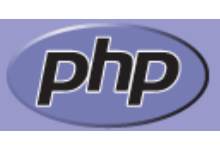| First PHP 7 Beta Released |
| Written by Kay Ewbank |
| Monday, 20 July 2015 |
|
The first beta of PHP 7 has been released, marking the next version as feature complete.
PHP is a language that has evolved from a simple scripting language designed to build web pages programatically into a very general server side web language. The new release has greatly improved performance and consistent 64-bit support. In language terms, a null coalescing operator has been added along with a combined comparison operator. Support for return type and scalar type declarations has also been added along with support for anonymous classes. The beta was delayed to catch up with the latest OpenSSL release issued on July 9. If you’re wondering what happened to PHP 6.x, the answer isn’t particularly clear. As we detailed last year, there was a vote for the next version skipping the 6.x numbering and moving direct to 7. The reson is simply that PHP 6 was a failed project that never resulted in a release of the language - even though there where books telling you how to use it. This is still a development preview, and the php.net website announcement of the beta is emphasizing that this is a development preview not to be used in production. The announcement says: “from now on, fundamental changes are not to be expected. What's more, this release brings over 200 commits with about 25 reported bug fixes, as well as security, stability and other improvements.” PHP tools vendor Zend Technologies, which led the PHP Next-Gen project on which PHP 7 is based, says on its website: “the performance gains realized from PHP 7 are huge! They vary between 25% and 70% on real-world apps, and all of that just from upgrading PHP, without having to change a single line of code.” According to Andi Gutmans, Zend's CEO, the new version also has reduced memory requirements, around two-thirds of the original requirements, which means you may get three times the throughput as PHP 5.6. The new combined comparison operator, <=>, has been dubbed the Spaceship Operator. It can be used for combined comparisons – mostly when dealing with sorting. It is similar to strcmp() or version_compare() in behavior, but it can be used on all generic PHP values with the same semantics as <, <=, ==, >=, >. The support for return type declarations and scalar type hints means developers will be able to declare what kind of return type a function is expected to have in a similar way to argument Type Hints. Argument type hints and the new return-type declarations also now support new scalar types, so you can denote that you’re expecting strings, floats, ints or bools to be passed or returned. The plan is to have a second beta release for July 23, with the final release slated for November 12.
More InformationRelated ArticlesThe Next Version Of PHP And The Status Of PHPng PHP Gets A Formal Specification
To be informed about new articles on I Programmer, install the I Programmer Toolbar, subscribe to the RSS feed, follow us on, Twitter, Facebook, Google+ or Linkedin, or sign up for our weekly newsletter.
Comments
or email your comment to: comments@i-programmer.info |
| Last Updated ( Monday, 20 July 2015 ) |


